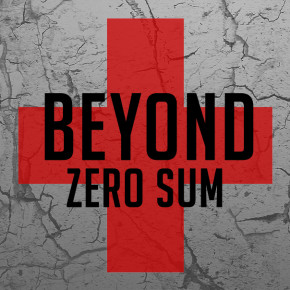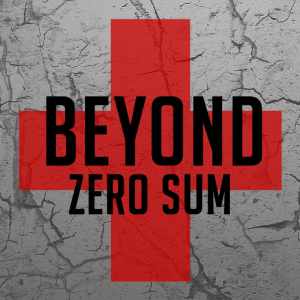 An open letter appeared in the world’s most prominent medical journal a few weeks ago with the title “Let us treat patients in Syria.” Carrying the signatures of 55 esteemed physicians from around the world, including three Nobel laureates, the letter served as a condemnation of the collapsing medical infrastructure in the region due, in part, to the “deliberate targeting of medical facilities and personnel.” Saleyha Ahsan, an emergency medicine physician and signatory, subsequently published an op-ed in The New York Times with the title “In Syria, Doctors Beware.” Working with Hand in Hand for Syria, a relief agency, he describes the conditions in grim detail: “More than half of Syria’s hospitals have been destroyed or badly damaged in the conflict. According to the Violations Documentation Center, 469 health workers are imprisoned, and the Council on Foreign Relations estimates that 15,000 doctors have been forced to flee abroad. Of the 5,000 physicians in Aleppo Province before the conflict started, only 36 remain.” The findings of a comprehensive UN investigation into this issue have recently been published.
An open letter appeared in the world’s most prominent medical journal a few weeks ago with the title “Let us treat patients in Syria.” Carrying the signatures of 55 esteemed physicians from around the world, including three Nobel laureates, the letter served as a condemnation of the collapsing medical infrastructure in the region due, in part, to the “deliberate targeting of medical facilities and personnel.” Saleyha Ahsan, an emergency medicine physician and signatory, subsequently published an op-ed in The New York Times with the title “In Syria, Doctors Beware.” Working with Hand in Hand for Syria, a relief agency, he describes the conditions in grim detail: “More than half of Syria’s hospitals have been destroyed or badly damaged in the conflict. According to the Violations Documentation Center, 469 health workers are imprisoned, and the Council on Foreign Relations estimates that 15,000 doctors have been forced to flee abroad. Of the 5,000 physicians in Aleppo Province before the conflict started, only 36 remain.” The findings of a comprehensive UN investigation into this issue have recently been published.
These illegal attacks have a crucial “knock-on effect” and ultimately translate into poor outcomes for patients downstream in terms of morbidity and mortality. Furthermore, it’s important to note that this medical crisis exists within a much larger humanitarian crisis that will change the world forever. Briefly, some background will be useful.
A quick glance through the headlines reveals that the issue of chemical weapons in Syria has been the dominant story for the last eight weeks. The precipitating factor was the August 21 sarin gas attack on a suburban district in Ghouta, just outside of Damascus. An early government assessment called for by the White House determined the death toll to be just over 1,400 civilians. Though this rudimentary figure has been disputed, the report of an in-depth investigation conducted weeks afterward by Human Rights Watch (HRW) reveals that the estimate is a reasonable one, though they conclude that a precise death toll is not feasible due to the large size of the affected area and the ensuing chaos.
Virtually without pause, the attack has since served as a major source of controversy and intense debate given the delicate nature of chemical weapons usage in global affairs. Their usage in the conflict has been called a “game-changer” in that it serves as a turning point for the world to intervene, finally, in a war that has dragged on for over two years and has claimed over 100,000 lives. Indeed, five days after the attack, one prominent journalist, writing in the journal Foreign Affairs, was already criticizing rumors that the Obama administration was advocating “a mere punitive campaign” instead of gearing up for a more destructive intervention aimed at regime change. Furthermore, other commentators and officials have argued ferociously over which side was responsible, the role of the United Nations, the relevance of international law, the legality of armed intervention, and other related topics. Even Russian president Vladimir Putin was given a voice in American discourse when The New York Times published an op-ed he penned, notoriously.
Central to the heated rhetoric has been graphic imagery of the victims of the attack, including children, foaming at the mouth, laying in rows, and gasping for breath. Doctors Without Borders (Medecins Sans Frontieres, MSF), which has been highly active on the ground during the conflict and did much of the initial reporting on the conditions of the victims following the attack, had to issue a statement regarding the politicization of their findings by American, British, and other governments: “Now that an investigation is underway by United Nations inspectors, MSF rejects that our statement be used as a substitute for the investigation or as a justification for military action. MSF’s sole purpose is to save lives, alleviate the suffering of populations torn by Syrian conflict, and bear witness when confronted with a critical event, in strict compliance with the principles of neutrality and impartiality.”
Indeed, they have, along with other humanitarian groups, borne witness to the unfolding tragedy since its early stages, long before the “game changer.” Importantly, their statement underscores the less prominent plight of the 6.8 million Syrians requiring urgent humanitarian assistance: two million refugees in neighboring countries and 4.25 million internally displaced, half of whom are children. These are particularly devastating figures given that Syria was a population of 22 million. Oxfam International issued a tacit recognition that the broader humanitarian situation has been sidelined by the focus on chemical weapons and military intervention: “There is a clear risk that Western governments ratcheting up the rhetoric and preparing for military intervention will make the situation worse. Instead of focusing on military options and arming parties to the conflict, President Obama, President Putin and other world leaders should put aside their differences and intensify peaceful efforts to stop the bloodshed, before Syria is destroyed and the region is further destabilized.”
Save the Children, a children’s rights non-governmental organization, recently put out a report that describes the poverty and hunger that now characterize the lives of the internally displaced. It notes that Syrian parents rank lack of food as the second biggest source of stress with the first being overall security. The consequences of a rapidly depreciating currency and dysfunctional markets have been devastating: “Deprived of their income and assets, and with food prices rocketing, thousands of parents have been pitched from lives of relative comfort into destitution. While inflation is estimated to be around 50%, food-price inflation is as high as 100%. Impoverished by the conflict and faced with this rampant inflation, 40% of families across seven governorates report that they lack enough food, what used to be a comfortable state salary is now insufficient to buy enough basic food…More and more families are sinking into destitution and debt, selling off what little they still have and sliding nearer the point [sic] when they simply cannot feed their children.”
The two million Syrians seeking refuge in neighboring countries face similarly bleak prospects. Most have fled to crowded camps in Lebanon, Jordan, Turkey and Iraq which, as a recent Reuter’s article points out, are becoming “increasingly wary [that] conflict could spread to their soil” given that there is no end in sight. The article describes one family of 15 that could not be accommodated in Jordan, Lebanon or Turkey, so they turned to Yemen where they are now “begging on the streets.” Another recent article in Jerusalem Post describes the harsh conditions of another camp in Turkey: “More than 200 Syrians, most of them families with young children, live in a trash-infested lot across from the refugee camp. Their names cannot be disclosed because of fear of retribution against family members still in Syria. Converted shipping containers, enough to hold up to 12,000 refugees, provide crammed living quarters.”

Field hospital doctors at the Zaatari refugee camp in Jordan, where a dozen babies are delivered every day. (AP Photo/Mohammad Hannon)
Such is the situation that the World Health Organization (WHO) has deemed “the worst ongoing humanitarian crisis on earth.” The WHO has offered its own assessment and summary of the rapidly declining health system in the region, which I have described in a previous article: 60% of public hospitals have limited or no capacity, transportation for patients is severely limited, there is a shortage of health professionals, there is an increased risk of infectious disease outbreaks due to disruptions in vaccination programs, overcrowding in public shelters, damage to water and sanitation infrastructure, and lack of waste management, and there is a shortage in essential medicines for chronic diseases resulting in an increased number of patients with hypertension, diabetes, cancer, epilepsy, asthma and renal failure. MSF referred to the patients that die due to lack of access to healthcare as the “silent casualties” of this conflict.
Thus, it is from this backdrop that health students and professionals should engage with the Syrian issue. The principle of medical neutrality, which has roots in the Hippocratic Oath, is a core component of international humanitarian law. Its modern roots trace back to the Geneva Convention of 1864 which recognized the value of impartiality. That is, the depoliticized nature of humanitarian relief. It is older than the prohibition of the use of chemical warfare and the values that it represents are more universal. Not only must health workers be allowed to care for the sick and wounded in combat zones; physicians and nurses cannot regard affiliation when treating patients. Thus, the use of sarin gas is not a “game changer” for agents of impartiality, and the identity of the perpetrator is a non-issue for medical professionals operating internationally, as reiterated by Doctors Without Borders.
Beyond Zero Sum is a column that examines the civilian consequences of the Syrian civil war as well as the responses of the international medical community to the rapidly escalating crisis. It takes its name from a reflection by Bill Clinton on humanity in the 21st century: “The more complex societies get and the more complex the networks of interdependence within and beyond community and national borders get, the more people are forced in their own interests to find non-zero-sum solutions. That is, win-win solutions instead of win-lose situations because we find, as our interdependence increases, that, on the whole, we do better when other people do better as well.”

